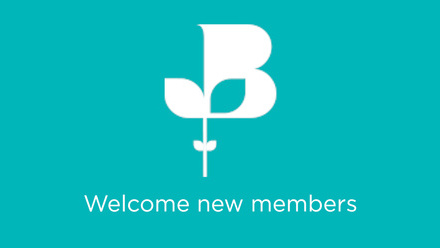Let's hope for 'boring' after a rollercoaster ride so far

To quote our CFO: “Happy new financial year!”, writes Henrietta Brealey.
And for those businesses who work to the April-March calendar, it’s already been a faintly exhausting one thanks mostly to the president across the pond.
Just a couple of weeks into 25/26 and we’ve all been dealing with the latest Trump rollercoaster - tariff announcement, global market reaction, backtrack on parts of the announcement, more reaction, and so the cycle continues.
Now, while it all makes for excellent fodder for the headlines, the practical realities of navigating this constantly shifting landscape have been difficult to say the least for a range of businesses – but none more so than those who export directly to the USA.
By value, 26 per cent of West Midlands exports go to North America, with the USA taking the lion’s share of that.
It is a market that many internationally focused businesses have actively looked to expand into following the trade disruption caused by Brexit.
For those businesses, many of whom already operate on relatively tight margins, carefully laid business plans and budgets are already under pressure as they grapple with the direct and indirect impacts of these changes, the key components of which are (currently):
- 12 March – 25 per cent import duties on UK and global steel, aluminium and derivative products entering the US. In practice, this applies to wide range of products from furniture, construction, tableware, nuts, screws and is already having effect on supply chains.
- 3 April – 25 per cent additional import duties on UK and global automotive vehicles entering the US. This is on top of previous duties of 2.5 per cent, making duties on cars payable at new rate of 27.5 per cent.
- 5 April – 10 per cent additional import duties on affected products took effect (the global baseline rate – now excluding various electronics)
Now, let’s say for a moment you’re a British manufacturer exporting chairs that are made of a mix of wood and aluminium - it all gets quite complicated quite quickly.
Our top advice for impacted businesses?
1) Check the INCOTERMS used in your contracts with US customers to determine where responsibility for paying tariffs sits (e.g. Delivery Duty Paid means the exporter is responsible, under most other terms the importer is responsible) and open up dialogue with your customers,
2) check that your documentation and your HS/Commodity Codes are accurate and up to scratch so that your goods are correctly classified,
3) ask for help.
You’re not alone in trying to get your head around this fast-moving trade migraine.
At the Chamber, we have in house teams of experts and advisors in international trade documentation, international networks and peer support.
Whether it’s a tactical ‘what does this mean for my business?’ or more strategic ‘so what other markets might present new opportunities instead?’, we’ve got you covered.
Of course, Trump tariffs aren’t the only ‘headache’ coming in to affect this month. We also have the implementation of the changes to Employer National Insurance and the National Living Wage announced at the Autumn budget.
Combined, it presents a picture of another uncertain year. And as we know, businesses hate uncertainty (although, after the past few years, uncertainty really has become the new normal).
But despite it all, I’m choosing optimism. Maybe it’s the sunshine, or maybe it’s years of sticking to the old management and leadership mantra: control the controllables. Because even when the bigger picture looks a bit grim, there are still very real opportunities out there.
Take our latest project: The Business Growth Studio. It’s been built with insight from our GBCC Chamber Council - a brilliant, representative mix of business leaders who helped us identify the key challenges and opportunities facing small and micro businesses right now. The result is a programme tailor-made to help them not just survive, but thrive.
It offers a suite of hands-on, practical workshops, digital resources packed with insight, a one-day conference designed to inspire and energise, and clear signposting to benefits and support available through the Chamber. All tailored specifically for small businesses, and all free for GBCC members.
The content is structured around six core pillars. Growth Fundamentals covers the essentials of strategy, finance, marketing, and operations.
Growth Through People focuses on leadership and effective people management.
Sustainable Growth explores the environmental and social impact of doing business responsibly.
Innovation for Growth helps businesses improve, adapt, and create.
Global Growth supports those looking to trade internationally (and will no doubt continue to be a busy topic this year!).
And finally, Tech for Growth digs into AI, digital transformation, and emerging technology.
We’re kicking things off in June with a powerhouse first session on AI Agents, led by Dragon’s Den star Piers Linney.
The aim is to make sure businesses are getting the right advice, connecting with peers, and accessing support at the moments they need it most.
Of course, this is in no way downplaying the real challenges facing businesses. In fact, our policy team have been busier than ever banging the drum for business with stakeholders and in the media, calling for action and change to support business growth.
While official Chambers of Commerce in the UK are independent organisations, we are accredited by the British Chambers of Commerce whose expert team lead representation to, and engagement with, central Government.
Their fast response to this agenda has already led to securing Government action on changes to subsidies rules and thresholds and greater recourse to anti-dumping and import surge measures to protect UK production and expanding UK Export Finance support.
They are now working closely with Government on businesses’ views on the terms of any new economic partnership agreement with the US and closer trading terms with other key partners like the EU and CPTPP.
On business growth, at the end of last month we convened businesses and stakeholders to dig into progress on The Business Commission West Midlands: A Roadmap for Business Growth, one year after publishing this comprehensive assessment of what business needs from local, regional and national stakeholders to support their growth ambitions.
There’s plenty more to do – but also appetite, and mutual recognition of the urgent need for, getting businesses the right platform to grow.
So, while it’s unfortunately clear that we’re not going to get that gloriously boring year we all so well deserve, we’ve got a whole 11 months yet to come of this year.
While it’ll no doubt continue to throw twists and turns our way, at the Chamber we’re heading into it with focus, resilience, and a renewed commitment to helping our business community weather the storms and seize the opportunities.
Whether it’s navigating the complexities of international trade, adjusting to new domestic policy shifts, or unlocking fresh growth through innovation and upskilling.
So, here’s to rolling with the punches, sharing what works, and building a stronger, smarter, more connected business ecosystem together. Let’s make 25/26 count.
Henrietta Brealey is chief executive of Greater Birmingham Chambers of Commerce
This column first appeared in the Birmingham Post



